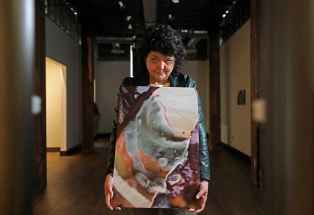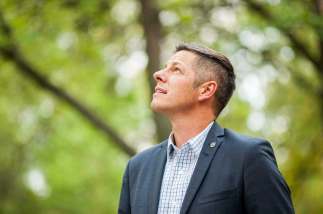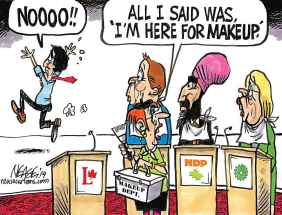Supreme Court road show draws overcapacity crowd in Winnipeg
Read this article for free:
or
Already have an account? Log in here »
To continue reading, please subscribe:
Monthly Digital Subscription
$0 for the first 4 weeks*
- Enjoy unlimited reading on winnipegfreepress.com
- Read the E-Edition, our digital replica newspaper
- Access News Break, our award-winning app
- Play interactive puzzles
*No charge for 4 weeks then price increases to the regular rate of $19.00 plus GST every four weeks. Offer available to new and qualified returning subscribers only. Cancel any time.
Monthly Digital Subscription
$4.75/week*
- Enjoy unlimited reading on winnipegfreepress.com
- Read the E-Edition, our digital replica newspaper
- Access News Break, our award-winning app
- Play interactive puzzles
*Billed as $19 plus GST every four weeks. Cancel any time.
To continue reading, please subscribe:
Add Free Press access to your Brandon Sun subscription for only an additional
$1 for the first 4 weeks*
*Your next subscription payment will increase by $1.00 and you will be charged $16.99 plus GST for four weeks. After four weeks, your payment will increase to $23.99 plus GST every four weeks.
Read unlimited articles for free today:
or
Already have an account? Log in here »
Hey there, time traveller!
This article was published 25/09/2019 (2269 days ago), so information in it may no longer be current.
A historic Supreme Court hearing began Wednesday in Winnipeg by putting into focus the lack of resources in Manitoba’s court system — a reality felt deeply across the country, the Supreme Court justices were told.
As they presided over a case outside of the nation’s capital for the first time in the court’s 144-year history, the nine judges were tasked with considering whether court delays caused by judges are a systemic problem in Canada, and if so, what they can do to stop them.
The issue likely isn’t top of mind for most Canadians outside the legal system — or even the majority of those within it — but the public’s interest was piqued by the chance to see Canada’s highest court in action.
About 180 people showed up to watch Wednesday’s hearing at the downtown Law Courts building in a 60-seat courtroom usually reserved for Manitoba’s Court of Appeal. There was a little fanfare: people were issued free tickets to get into the hearing, and Supreme Court Chief Justice Richard Wagner gave a short welcome address (not the norm in Ottawa).
“This is an historic moment. It is the first time in history the Supreme Court has sat outside of Ottawa. I hope it will not be the last,” he said.
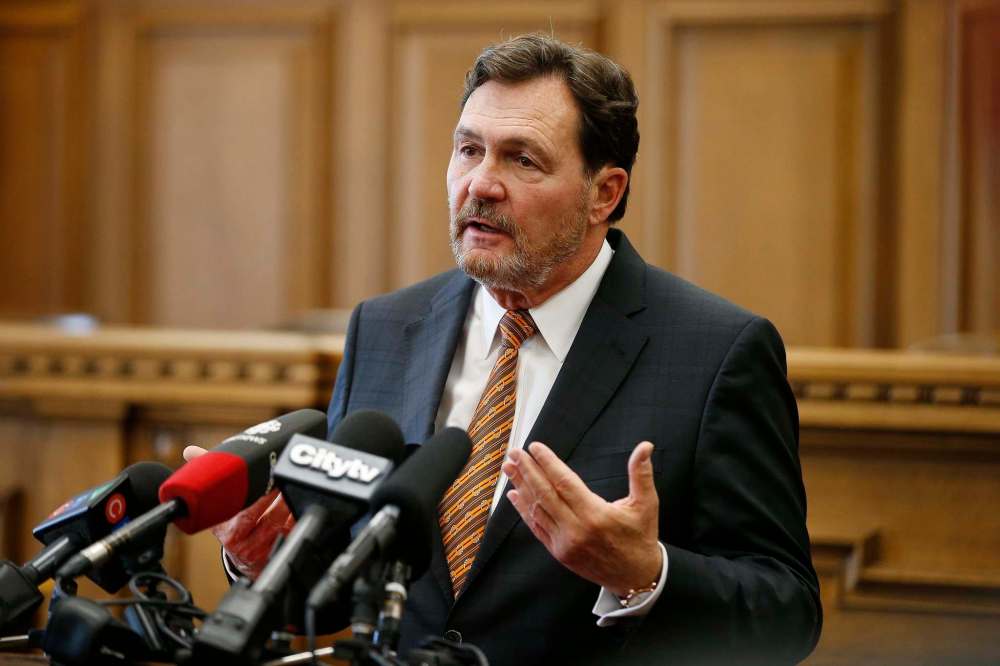
The audience packed the courtroom and cycled out in 30-minute sessions to make room for others who wanted to watch. Among them were several lawyers, at least one provincial court judge, groups of students, and Manitoba NDP Leader Wab Kinew. An overflow room was set up with a live video feed of the hearing, but a Supreme Court spokesperson said everyone who wanted to got a chance to sit in the main courtroom before the three-hour hearing was over.
From the start, Winnipeg defence lawyer Kathy Bueti drew the judges’ attention to resource shortages she argued have caused court delays in this province and have nationwide implications — including rural circuit court problems, a lack of summer court sittings and transcript backlogs. What the Supreme Court needs to focus on now, she said, is on creating guidelines to instruct Canadian courts about how long judges should have to reach their decision after a trial is over.
Court answers questions from the public
The Supreme Court’s visit to Winnipeg this week has featured another first: the whole panel of nine judges taking questions from the public.
The free event happened Wednesday, after Justices Richard Wagner, Rosalie Silberman Abella, Michael Moldaver, Andromache Karakatsanis, Suzanne Côté, Russell Brown, Malcolm Rowe, Sheilah Martin and Nicholas Kasirer finished hearing the Supreme Court’s first case in the Manitoba capital.
After a short introduction and a video explaining how the Supreme Court works, Manitoba Chief Justice Richard Chartier moderated questions from the audience.
Questions deemed political didn’t get answers, since the judges can’t talk about issues before the court. (Though it received applause from the audience, one man’s inquiry about what the court will do about the over-representation of Indigenous people in the justice system, now almost 30 years after the Aboriginal Justice Inquiry, didn’t get answered for that reason.) They did field questions about constitutional rights, self-representation in courts, and their pet peeves about lawyers.
The Supreme Court’s visit to Winnipeg this week has featured another first: the whole panel of nine judges taking questions from the public.
The free event happened Wednesday, after Justices Richard Wagner, Rosalie Silberman Abella, Michael Moldaver, Andromache Karakatsanis, Suzanne Côté, Russell Brown, Malcolm Rowe, Sheilah Martin and Nicholas Kasirer finished hearing the Supreme Court’s first case in the Manitoba capital.
After a short introduction and a video explaining how the Supreme Court works, Manitoba Chief Justice Richard Chartier moderated questions from the audience.
Questions deemed political didn’t get answers, since the judges can’t talk about issues before the court. (Though it received applause from the audience, one man’s inquiry about what the court will do about the over-representation of Indigenous people in the justice system, now almost 30 years after the Aboriginal Justice Inquiry, didn’t get answered for that reason.) They did field questions about constitutional rights, self-representation in courts, and their pet peeves about lawyers.
“I don’t have any general complaints about lawyers. Maybe about specific ones, but I won’t mention those,” Brown joked.
Several people who spoke to the Free Press following the event said they felt good about the public discussion.
Sahar Serwonka, a Grade 11 student at Kelvin High School, said she was glad to be able to have a one-on-one conversation with the judges after their public Q & A. She’s thinking about becoming a lawyer, and they had some valuable insight about when they realized the career was for them.
“They said they always knew,” she said, smiling.
On a visit to Winnipeg, Kansas resident George Dyck said he knew he wanted to hear what the judges had to say. To hear them answer people’s questions was “encouraging,” he said.
“Somehow, it makes me feel like Canada is the last bastion of democracy,” he said with a laugh.
This visit is likely the first of other as-yet-unannounced stops outside of Ottawa for the Supreme Court.
During his public appearances this week, Wagner has been hinting he hopes to do more such events — which he said he hopes will help restore or confirm Canadians’ faith in the justice system, and teach them how it works.
“It’s hard to have faith in something if you don’t understand it,” Wagner said Wednesday morning.
— Katie May
“There are no easy answers,” Bueti told the judges. “There may not be a one-size-fits-all. But we need to at least have a start point and we need to have some enforceability.”
Her client, a rural Manitoba man referred to only by his initials, K.G.K., waited nine months after his 2016 trial for a judge to convict him of sexually touching his stepdaughter over the course of a decade, starting when she was four years old.
He was eventually sentenced to five years in prison, but is on bail pending his appeal and was present at Wednesday’s hearing.
There was no explanation about why Court of Queen’s Bench Justice Gerald Chartier took so long to deliver his oral verdict, except that, like all judges, he already had several other cases to decide. His verdict for K.G.K. came after the Supreme Court put out a 2016 ruling that set strict deadlines for how long Canadian criminal trials must take.
Is delay caused by judges a widespread issue in Canada?
Supreme Court Justice Michael Moldaver repeatedly asked that question, saying there is no evidence to show it is an “epidemic” in Canadian courts. Judges’ delay didn’t come up when the Supreme Court was working on its Jordan decision on trial delays, he said.
“We tried our best to get at those problems — the trial process, including and most importantly, that the Crown had an obligation… to bring the case to trial within a reasonable time,” Moldaver said. “The focus was never before us in terms of judges taking too long to come up with their decisions.”
In her first time appearing in front of the Supreme Court, Bueti told the justices it’s up to them to give guidelines about how long judges can spend deliberating on cases, particularly cases like K.G.K.’s, which had only two witnesses and was “the kind of case you give to a junior lawyer to cut their teeth,” she said.
“We tried to our best to get at those problems– the trial process, including and most importantly, that the Crown had an obligation… to bring the case to trial within a reasonable time. The focus was never before us in terms of judges taking too long to come up with their decisions.” – Supreme Court Justice Michael Moldaver
The Canadian Judicial Council has suggested judges should take no longer than six months, in most cases, and a six-month deadline has been implemented in provincial legislation for judges in Ontario.
A six-month deadline is supported by Ontario’s ministry of justice and the Ontario Criminal Lawyers’ Association, which were also represented at Wednesday’s hearing.
Others argued putting pressure on judges to rush decisions would hurt judicial independence and integrity. Lawyers for the federal Public Prosecution Service of Canada, Quebec’s prosecution service and Manitoba Justice argued against definitive timelines and urged the high court to let judges decide for themselves.
Michael Conner, Crown counsel for Manitoba Justice, agreed nine months was an unusually long time for a judge to issue a decision, but he said Chartier was likely grappling with difficult evidence from a child witness who was describing abuse that happened over 10 years. It wasn’t an “unreasonable” delay, he said.
He responded to Moldaver’s questions about whether this is a systemic problem, saying it is not in Manitoba.
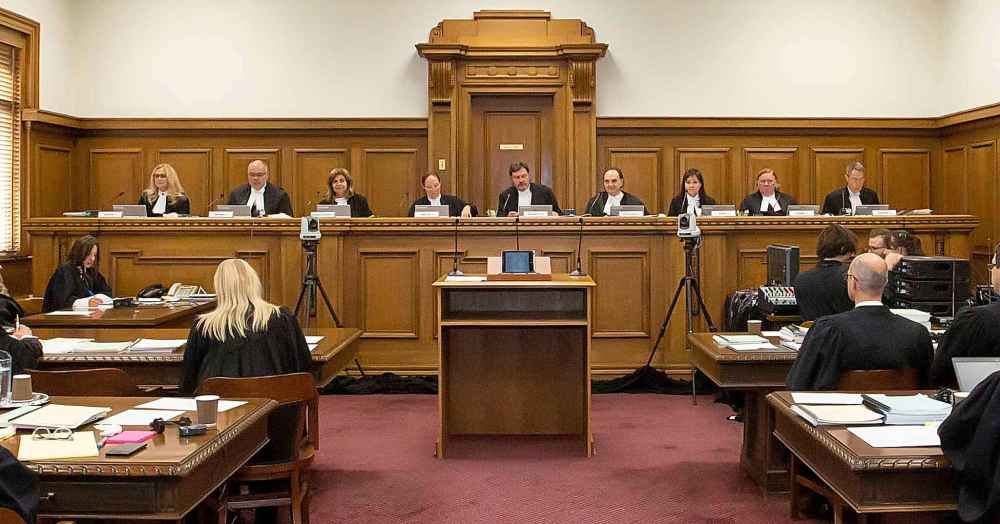
To reach a decision, the Supreme Court will have to weigh the need for timely court processes with judges’ independence and their need to take time to issue well-reasoned, fair decisions despite resource shortages in courts across the country.
They also have to consider how any rules they set out would be enforced. Several of the judges spoke out Wednesday against a system in which judicial inquiries would have to be called to decide delay motions, or a process in which judges would have to give affidavits about their own job performance.
At the same time, they have to acknowledge a lack of resources in the court system is no excuse for violating people’s rights with unreasonable delays, said Winnipeg defence lawyer Amanda Sansregret, co-counsel for K.G.K.
Her final words to the Supreme Court judges brought them back to those realities.
“Lack of resources cannot allow rights to be abdicated,” she said.
katie.may@freepress.mb.ca
Twitter: @thatkatiemay
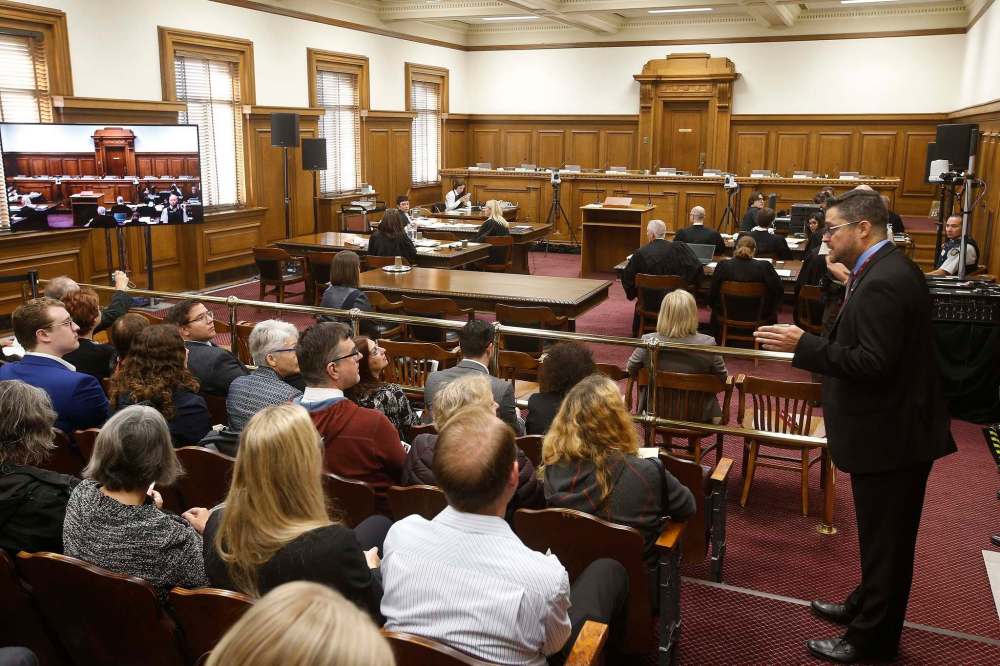

Katie May is a general-assignment reporter for the Free Press.
Our newsroom depends on a growing audience of readers to power our journalism. If you are not a paid reader, please consider becoming a subscriber.
Our newsroom depends on its audience of readers to power our journalism. Thank you for your support.
History
Updated on Wednesday, September 25, 2019 8:50 PM CDT: Fixes typo
Updated on Thursday, September 26, 2019 12:41 PM CDT: Photo changed.









